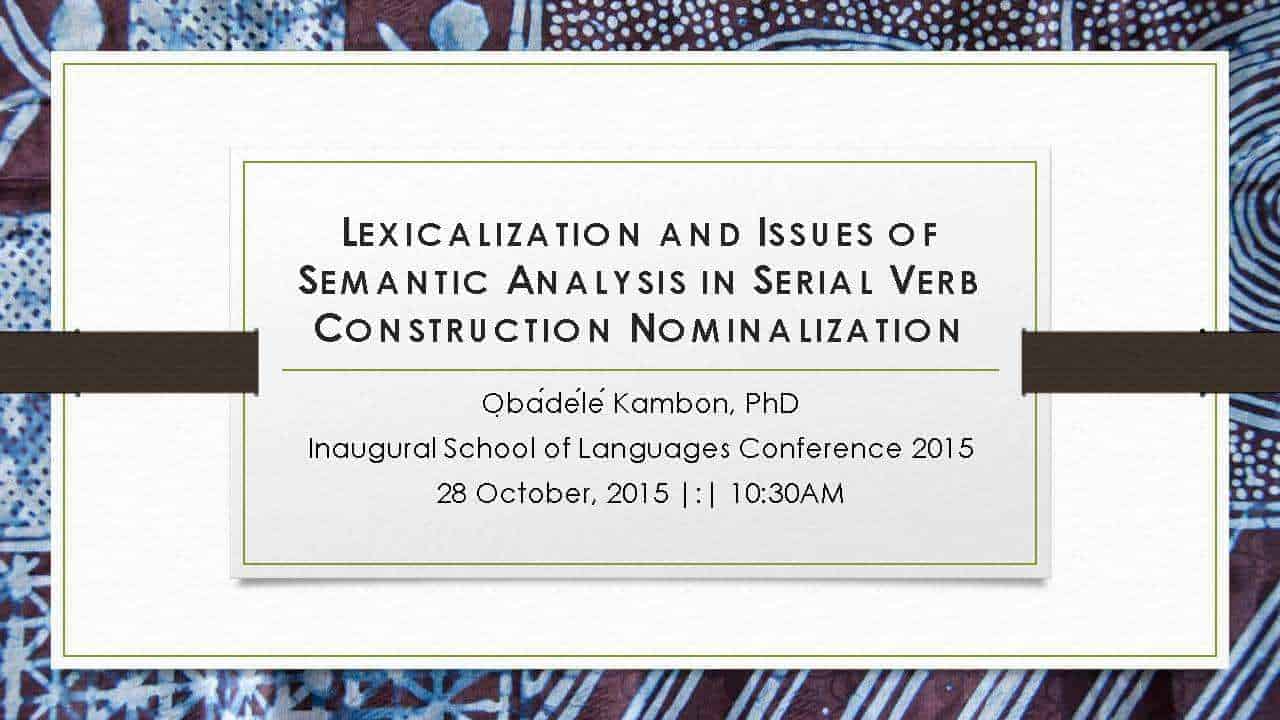Description
Obadele Kambon, PhD
Inaugural School of Languages Conference 2015
28 October, 2015
10:30AM
Video (Viewable Online) and Secured PDF of PowerPoint Presentation (downloadable) Combo Bundle
Video Duration: 33:00
Secured PDF of Lecture Slides: 47 Slides
Abstract: Serial verb constructions (SVCs) are attested in four well-defined geographical areas: Benue-Congo languages of West Africa, Atlantic Creoles, New Guinea and South-East Asian languages. SVCs can be understood as “a sequence of verbs [together with any accompanying non-verbal elements including complements/internal arguments] which act together as a single predicate, without any overt marker of coordination, subordination, or syntactic dependency of any other sort” (Aikhenvald 2006: 1, Kambon, Osam, and Amfo 2015). In languages with serial verb construction nominalization (SVCN), such as Akan and Yorùbá, it has been observed that components of the nominal may become lexicalized to the point that decomposing the nominal back to its constituent parts becomes problematic with specific regard to tracing root meanings (Bamgbose 1964, 1982, Kambon 2012, Kambon, Osam, and Amfo 2015). Therefore, it would be expected that other West African serializing languages with SVCNs may face similar issues in terms of impediments to semantic analysis and decomposition due to progressively higher degrees of semantic integration, lexicalization and idiomaticity (Kambon 2012). As such, Serial Verb Construction Nominalization can function as an extended test for semantic integration, lexicalization and idiomaticity.










Reviews
There are no reviews yet.